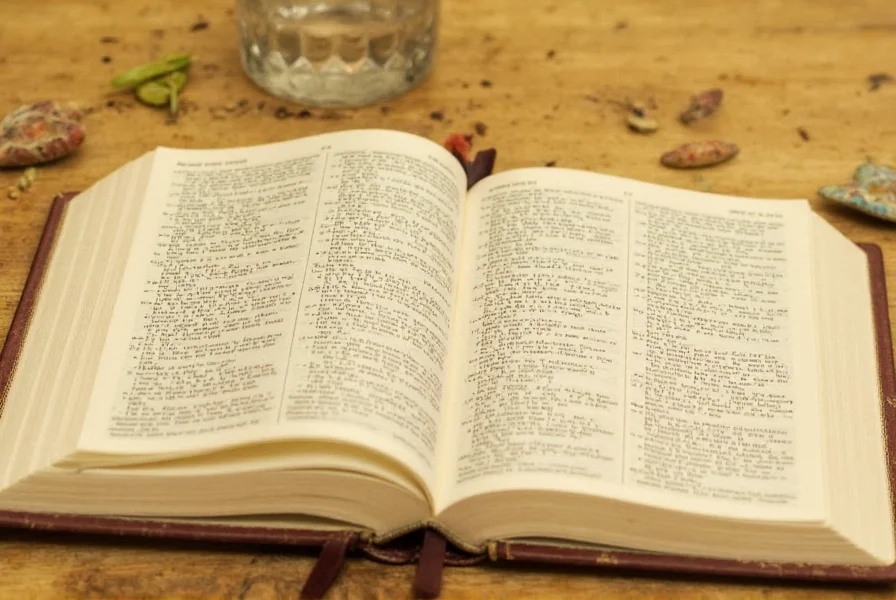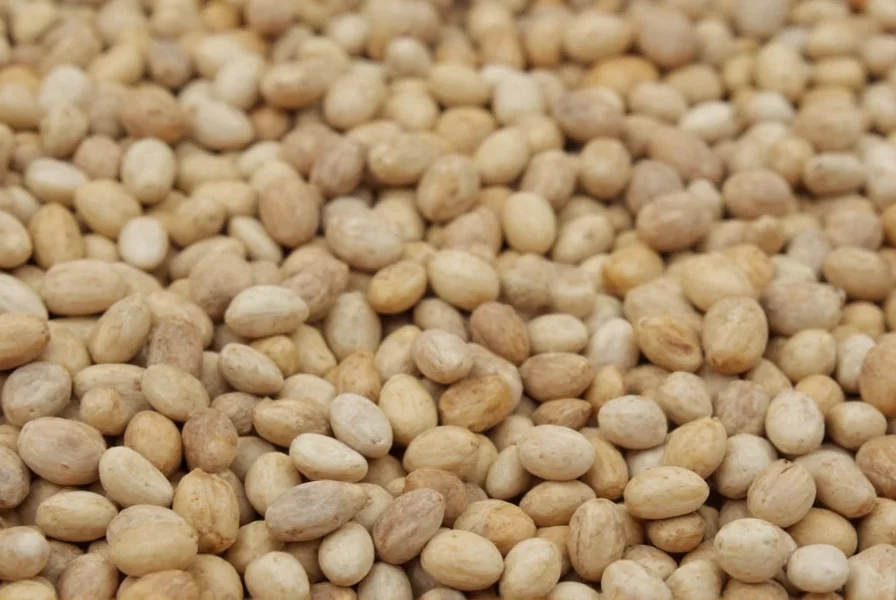When Jesus spoke about the \"faith of a mustard seed,\" He wasn't suggesting that believers need only a tiny amount of faith to accomplish great things. Rather, He highlighted the remarkable potential within authentic faith, however small it may seem. The mustard seed, one of the smallest seeds in Jesus' time, produces a large plant—illustrating how genuine faith, properly oriented toward God, yields extraordinary results.
Biblical Context of Mustard Seed Faith
The \"faith of a mustard seed\" appears in three Gospel accounts, each providing unique perspective on this powerful teaching. In Matthew 17:20, Jesus responds to His disciples' failed attempt to heal a boy with epilepsy, stating: \"Because of your unbelief; for assuredly, I say to you, if you have faith as a mustard seed, you will say to this mountain, 'Move from here to there,' and it will move; and nothing will be impossible for you.\"
Mark 4:30-32 presents the mustard seed as a parable about the kingdom of God: \"To what shall we liken the kingdom of God? Or with what parable shall we picture it? It is like a mustard seed which, when it is sown on the ground, is smaller than all the seeds on the earth; but when it is sown, it grows up and becomes greater than all herbs, and shoots out large branches, so that the birds of the air may nest under its shade.\"
Luke 17:6 reinforces this concept: \"And the Lord said, 'If you have faith as a mustard seed, you can say to this mulberry tree, \"Be pulled up by the roots and be planted in the sea,\" and it would obey you.\"\"
| Gospel Account | Reference | Key Emphasis |
|---|---|---|
| Matthew | 17:20 | Overcoming obstacles through genuine faith |
| Mark | 4:30-32 | Kingdom growth from small beginnings |
| Luke | 17:6 | Authority through authentic faith |
Historical Understanding of Mustard Seeds
In first-century Palestine, the mustard seed represented something remarkably small yet capable of significant growth. The black mustard plant (Brassica nigra) common in that region could grow up to 10 feet tall from a seed measuring only 1-2 millimeters in diameter. This dramatic transformation from tiny seed to substantial plant made it an effective teaching tool.
Contrary to popular misconception, Jesus wasn't claiming the mustard seed was literally the smallest seed. Instead, He used a familiar example from His audience's agricultural experience. The point wasn't botanical precision but illustrating how something seemingly insignificant could produce extraordinary results when properly cultivated.

Common Misinterpretations of Mustard Seed Faith
Many people misunderstand the \"faith of a mustard seed\" teaching as suggesting that believers need only a small amount of faith to accomplish anything. This interpretation misses Jesus' deeper point. The focus isn't on the quantity of faith but its quality and object.
Three prevalent misconceptions about mustard seed faith include:
- Quantity over quality - Believing that accumulating more faith is the goal rather than cultivating authentic trust
- Self-reliance - Thinking faith itself has inherent power rather than recognizing it as a conduit to God's power
- Formulaic approach - Treating faith as a spiritual formula where specific words produce guaranteed results
Practical Application of Mustard Seed Faith Today
Understanding the true meaning of \"faith of a mustard seed\" transforms how believers approach challenges. Genuine mustard seed faith isn't about mustering personal willpower but developing authentic trust in God's character and promises. This biblical concept of mustard seed faith practical application encourages believers to focus on the object of their faith rather than the intensity of their feelings.
When facing seemingly insurmountable challenges, consider these practical steps:
- Examine the object of your faith rather than its size
- Align your requests with God's character and purposes
- Release control and trust God's timing and methods
- Maintain perseverance through prayer and obedience
The mustard seed parable explanation reveals that authentic faith grows through use. Just as a mustard seed must be planted to grow, faith develops through active trust in God's promises, even when circumstances seem impossible.

Developing Authentic Mustard Seed Faith
Learning how to develop mustard seed faith involves more than positive thinking or wishful hoping. Biblical faith combines knowledge of God's character, trust in His promises, and obedient action. The meaning of faith of a mustard seed becomes clear when we recognize that even small, genuine trust in God's power produces remarkable results.
Consider these evidence-based approaches to cultivating authentic faith:
- Study God's faithfulness - Document biblical and personal examples of God's reliability
- Practice small obediences - Faith grows through consistent, faithful action in ordinary circumstances
- Engage with community - Share struggles and victories with fellow believers for mutual encouragement
- Meditate on Scripture - Internalize God's promises through regular reflection
The biblical interpretation of mustard seed faith reveals that God honors even the smallest expression of genuine trust. This understanding transforms how believers approach prayer, challenges, and spiritual growth.
Conclusion: The Transformative Power of Authentic Faith
The teaching on faith of a mustard seed remains profoundly relevant for modern believers. Understanding Jesus' mustard seed teaching helps us recognize that authentic faith isn't measured by emotional intensity but by its connection to God's power. Small faith in a great God accomplishes more than great confidence in human ability.
When facing life's mountains, remember that God doesn't require perfect faith—He works through genuine trust, however small it may seem. The mustard seed metaphor reminds us that God specializes in taking what appears insignificant and producing extraordinary results through it.
What does 'faith of a mustard seed' actually mean in biblical context?
The phrase refers to Jesus' teaching that authentic faith, even as small as a mustard seed, can accomplish extraordinary things when connected to God's power. It emphasizes the quality rather than quantity of faith, highlighting that genuine trust in God yields remarkable results regardless of its apparent size.
Where in the Bible is the mustard seed faith mentioned?
The mustard seed faith teaching appears in three Gospel accounts: Matthew 17:20 (in response to disciples' failed healing attempt), Mark 4:30-32 (as a parable about the kingdom of God), and Luke 17:6 (regarding authority through faith). Each passage provides unique perspective on this important concept.
Does mustard seed faith mean I only need a little faith to move mountains?
No, this is a common misunderstanding. Jesus wasn't teaching that minimal faith is sufficient, but rather that authentic faith—properly oriented toward God—has extraordinary potential. The focus is on the object of faith (God's power) rather than the amount of faith. Genuine trust in God's character and promises produces results beyond human capability.
How can I develop mustard seed faith in my daily life?
Develop mustard seed faith by studying God's faithfulness in Scripture and personal experience, practicing obedience in small matters, engaging with a faith community, and meditating on biblical promises. Authentic faith grows through consistent trust and action, not through emotional intensity. Start with acknowledging God's power in everyday situations rather than waiting for dramatic circumstances.
What's the difference between mustard seed faith and positive thinking?
Mustard seed faith differs from positive thinking in that it's rooted in trust in God's character and power rather than self-generated optimism. Biblical faith acknowledges human limitation while depending on divine capability. Positive thinking focuses on human potential, while mustard seed faith recognizes that results come from God working through genuine trust, not from the believer's mental attitude alone.
Frequently Asked Questions About Mustard Seed Faith
What does 'faith of a mustard seed' actually mean in biblical context?
The phrase refers to Jesus' teaching that authentic faith, even as small as a mustard seed, can accomplish extraordinary things when connected to God's power. It emphasizes the quality rather than quantity of faith, highlighting that genuine trust in God yields remarkable results regardless of its apparent size.
Where in the Bible is the mustard seed faith mentioned?
The mustard seed faith teaching appears in three Gospel accounts: Matthew 17:20 (in response to disciples' failed healing attempt), Mark 4:30-32 (as a parable about the kingdom of God), and Luke 17:6 (regarding authority through faith). Each passage provides unique perspective on this important concept.
Does mustard seed faith mean I only need a little faith to move mountains?
No, this is a common misunderstanding. Jesus wasn't teaching that minimal faith is sufficient, but rather that authentic faith—properly oriented toward God—has extraordinary potential. The focus is on the object of faith (God's power) rather than the amount of faith. Genuine trust in God's character and promises produces results beyond human capability.
How can I develop mustard seed faith in my daily life?
Develop mustard seed faith by studying God's faithfulness in Scripture and personal experience, practicing obedience in small matters, engaging with a faith community, and meditating on biblical promises. Authentic faith grows through consistent trust and action, not through emotional intensity. Start with acknowledging God's power in everyday situations rather than waiting for dramatic circumstances.
What's the difference between mustard seed faith and positive thinking?
Mustard seed faith differs from positive thinking in that it's rooted in trust in God's character and power rather than self-generated optimism. Biblical faith acknowledges human limitation while depending on divine capability. Positive thinking focuses on human potential, while mustard seed faith recognizes that results come from God working through genuine trust, not from the believer's mental attitude alone.










 浙公网安备
33010002000092号
浙公网安备
33010002000092号 浙B2-20120091-4
浙B2-20120091-4